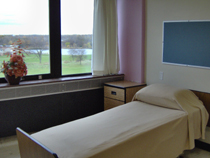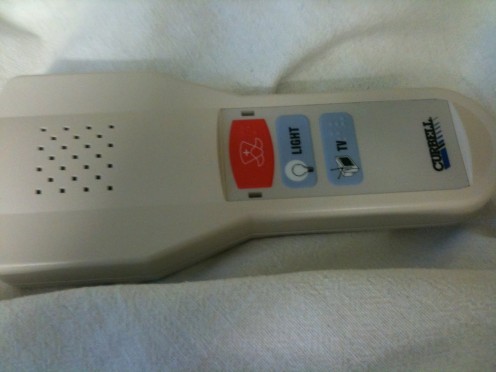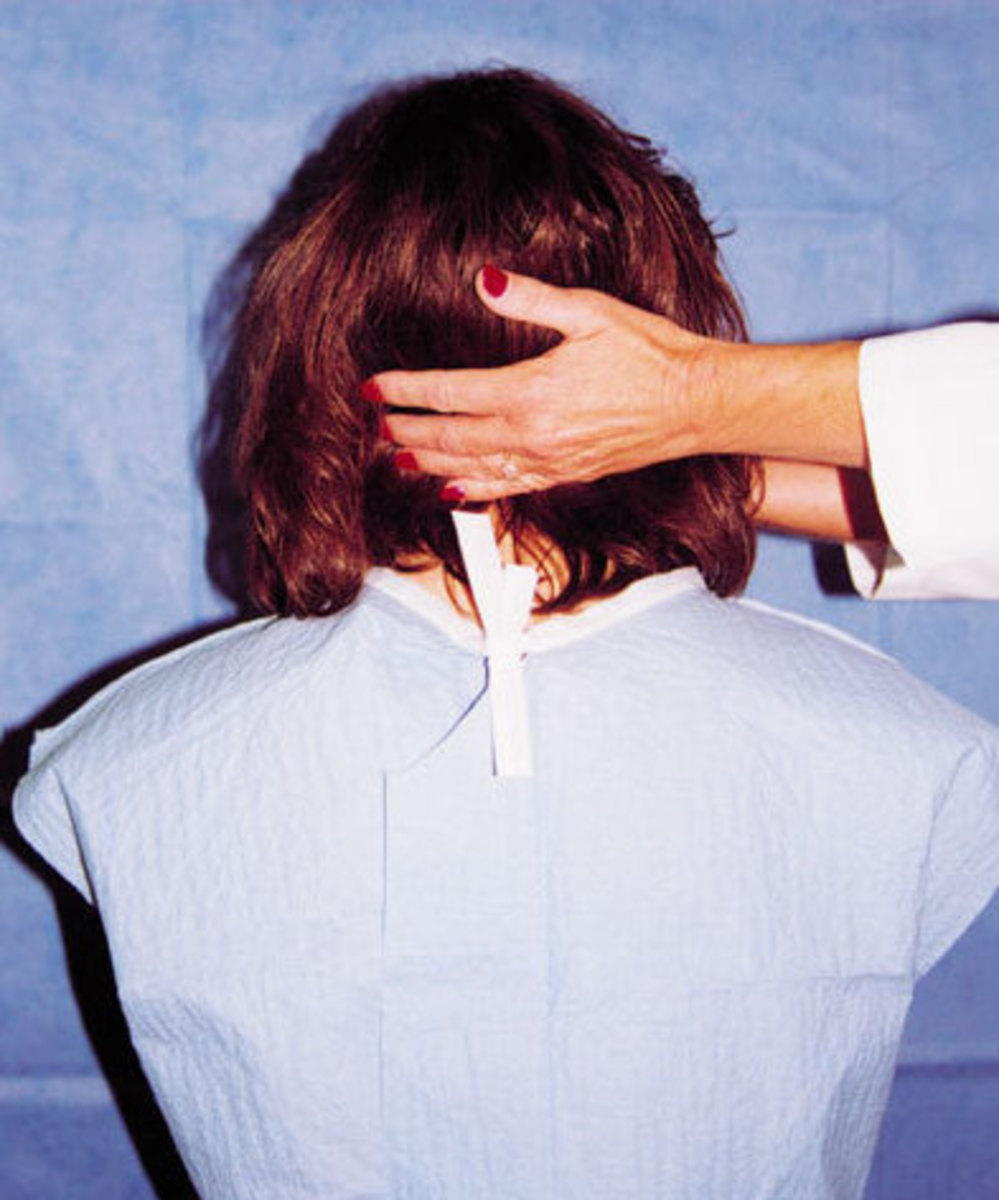The Truth About Hospitals EVERY Patient Should Know
Having worked in several different hospitals over the past few years, I have learned a great deal. I have worked with a lot of great people, and for the most part, the people who work in hospitals are caring, compassionate people, who are there to provide you with the best possible care. Having said that, I feel that there are some issues which need to be addressed. There are some things that every patient should really know before going into a hospital. Some of these are pretty basic. Some of them, many of us have experienced in the past. Others are issues that the average person may not be aware of, or may not even think about. Having this knowledge can only benefit you as a patient. It is important to be aware of what is going on around you, things you may want to ask your doctor before being admitted, or at least some things you may want to know before finding yourself stuck in a little hospital room, sometimes with a roommate, sometimes with little means to get up and move around.
I have gathered this information over my years working in hospitals, talking with various members of hospital staff over the years, and with talking with some of the great patients I have had the good fortune to encounter. as well. I hope this information doesn't scare you into not going to a hospital if you need to. After all, if a hospital stay is necessary, it is still a better alternative to not going. The care you will receive may be essential to your health and well-being.

Some Simple Truth
Your hospital room is NOT as clean as it should be: Does this mean that the housekeepers are not doing their jobs? Maybe, in some cases, but generally speaking, no. The real issue here is time management and room/patient ratios. It is a lot of work to keep a hospital clean. There are not only patient rooms, operating rooms and nurses' stations to clean. There are also lobbies, usually several, offices, restrooms, hallways, break rooms, storage rooms, supply rooms, testing rooms (EKG, CT, etc) and various other areas that need to be cleaned. Different shifts cover different jobs. Usually, daily cleaning of occupied rooms will be done during the day. Cleaning recently emptied rooms is an all day and all night job. Patients are constantly coming and going. Sometimes, it's hard to keep up with all the work that needs to be done. Often, hospitals are short-handed, and steps get missed in order to get everything done on time. I have gone into supposedly clean rooms and found dust, garbage, and various other issues. Sometimes it is the fault of the housekeeper, sometimes it's a careless nurse who was either, restocking the room, and tossed the garbage into the garbage can, or worse yet, a staff member who saw the empty room as an opportunity to take their lunch in a nice, quiet room. There are various reasons why your room may not be as clean as it should be. With the recent rise in hospital-related illnesses, it is always best to be informed of such issues.
Steps do get missed in an attempt to get the rooms clean as quickly as possible. As I said, I worked for several different hospitals, and the hospitals could not have been more different. One hospital I worked at gave me the time I needed to do a good job, and make sure the room was clean. The attitude was fairly relaxed, as long as you did a good job. The attitude was a good one; clean the room as if it were your own family member that would be going into that room. I took pride in a well cleaned room. Sometimes I could get them done quickly, others took longer. I once had to clean a room where it was a contact precaution, meaning the person had some infection or illness that could be transmitted through contact with the patient or surfaces in the room. It requires extra cleaning. On top of that, the patient had been there for around three or four months. Imagine if you only did a light cleaning on your house every day or so for a few months, when you did a detail cleaning, it would be a lot more work. Same concept. That room took roughly two hours. Did I get in trouble? Nope. I explained the situation, and was even given help to get it done. Now the other hospital I worked at couldn't have been more different. You got thirty minutes to clean a room, no matter what. No excuses. As I said, contact precaution rooms require more time, and more thorough cleaning. This did not matter. On top of this, they went behind you and marked you down for everything you missed, further cutting into the time you could be using to properly clean the room. I figured out why they pushed us so hard; our managers were awarded with bonuses for quicker turn around times on patient rooms. The faster we cleaned (no matter the consequence to the patients) the more money they made. We did not see a dime of this, and in truth, it upset me that they were putting money above the safety and well being of the patients.
Your doctor really doesn't have time for you: This is not to say that the doctor has no time for you, or that he doesn't care about you. Doctors are just incredibly busy. They usually make rounds early in the morning, then have office hours until four or five in the evening, make another set of rounds in the evening, and if they are lucky, they can get home by around ten at night. I have known doctors that have worked consistent 15 hour days. Having so many patients to see, sometimes at several hospitals in the area, leaves little time for personal attention for each patient. I understand, that as a patient, you are sitting there, for hours, even days with little to do. I understand that patients often have a lot of questions for their doctors, but truth be told, if your doctor is able to see you on a particular day, he may not have a lot of time to talk with you. This frustrates a lot of patients. They feel their doctor doesn't care about them, doesn't listen to them, or that they don't understand. They do care, they do listen (usually), and they do understand. Patients often get mad at their doctors over this, and this anger carries over to the rest of the hospital staff. Blaming nurses or nurses' aids for not being able to see your doctor happens quite often. It isn't the fault of the nursing staff. It is a result of a system that is stretched to its limit. The reasons for this are many. I could go into all of them, but it would take a while. So, if you find yourself in the hospital, and you are getting frustrated that you haven't seen or heard from your doctor, don't get angry. Just ask your nurse, or aid if they know when your doctor makes rounds, and make sure you are available when they do. I can't tell you the number of times a patient got mad because a doctor made rounds and "never came to see them", only to find out the patient had been sleeping, or out walking the halls, when the doctor came through. The doctor isn't going to wake you up unless it's very important, and the doctor is not going to wander the halls looking for you.
Sleep deprived doctors

Another Perspective on Hospitals
- Why I Hate Hospitals
Are hospitals hospitable? Not always.
Complaining is a Bad Idea: This may sound terrible, and uncaring considering you are a patient in a hospital, and you are more than likely experiencing a certain amount of discomfort. Truth is, though. nurses and CNA's are busy, for the most part. The nursing staff has a certain number of patients to deal with. It becomes difficult for them if they have one, or more, patients that are frequently pushing their call button, asking for this and that, or just complaining about things. You may think it's perfectly reasonable to push the call button and ask for the temperature to be adjusted, then push it again a little later, asking for some water, and so on. The nursing staff sees it as a nuisance. Nurses have a lot of work to do other than just watching after their patients. They have charting to do, doctors to call and talk with, medications to go over and hand out, tests to check, and a bunch of other things to do. That is part of the reason that nurses have aides to help them. A lot of the additional responsibilities that are more directly related to the care of the patients falls to the aides, and sometimes medical assistants, which are similar to CNA's.
Your Call Button Will Not Be Answered Nearly As Quickly As You Would Think: It doesn't mean no one cares that you need something. It has to do with the volume of patients the nursing staff has to deal with and the multitude of responsibilities that the nursing staff has to deal with. You may need someone to come right away, but it may not be answered as quickly as you need it. I had seen patients hit their call button, tell the person they need help to the restroom, and wait for quite a while. They wait and wait, and then the person comes over the speaker in the room, only to ask if they have been helped yet, and no, the patient hasn't been helped. They are still sitting in their bed, desperate to get to the bathroom before they have an accident. And, often times, the nurse or aide does not get there in time. This leaves the patient feeling upset and ashamed, and means even more work for the nursing staff. Did they intentionally let the person sit there? No, they were just busy with other things at the moment. At times, more critical patients, with more serious issues, have a lot of problems and take a lot of a nurse's time. Often, the same thing goes for medications. I have seen patients in pain, pushing the call button for pain meds and end up waiting in agony. Is it intentional? Not likely, but it may be that the nurse doesn't have the meds ready yet, or it isn't actually time for another dose, or again, the nurse is busy with another patient. Just be prepared. Either have a family member spend time at the hospital to help you out, or remember to push the call button for help before you get to the point where you desperately need it. Sometimes there are boards on the wall that will tell you when you last had your dose of pain medication, and when you are due for it again. Keep track of when you were given your medication, and when you are due for it again. If you are due to have your pain meds at noon, push the call button about twenty minutes before, and let them know it's close to your medication time.

A Better Hospital Experience
If you want to have a better hospital experience, you need to go into it prepared. Knowing what to expect will make all of it easier to deal with. If you can, check your room to make sure it's clean. Obviously, you won't be able to see tiny germs on surfaces, but think proactively. Bring some sanitizing wipes with you, and wipe off the surfaces you are going to be touching frequently. I know it isn't your job to clean the room, but I would rather clean a little myself, than develop a nasty infection from touching something that wasn't cleaned properly.
Make sure if you, or a family member, will be in the hospital, have someone there to act as their advocate. Also, find the number for the patient advocate at the hospital, just in case. Most hospitals have one, even though they don't advertise it. Make sure you are getting the best care you can.
Be a patient patient. I can't stress this enough. I know you are not happy being there, no one likes to be in a hospital, but being a patient patient will make your stay there more pleasant and much easier to deal with.
© 2011 Anna Marie Bowman









